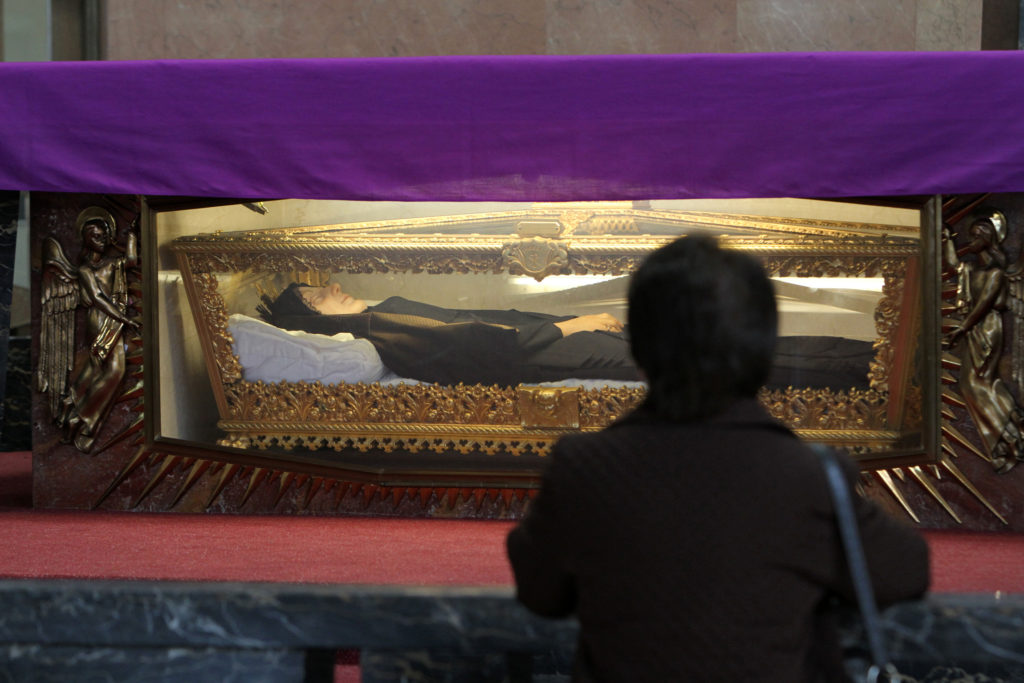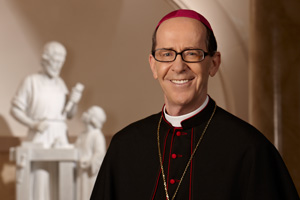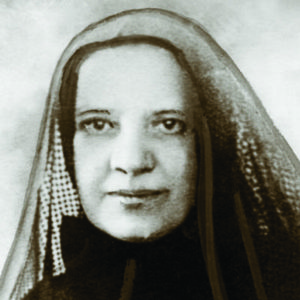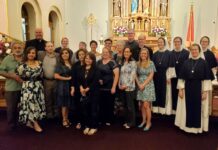

Tenth in a series
[dropcap]T[/dropcap]he first American citizen to be canonized a saint was an immigrant to our country and her life was dedicated to the care of immigrants. Coming to America, however, wasn’t what Frances Cabrini had in mind when she journeyed from Milan to Rome in AD 1887 to meet with the Successor of Peter. She wanted be a missionary in China. From the time she received the Sacrament of Confirmation at the age of 8 she had dreamed of witnessing to Christ among the Chinese; and that desire had only grown as she discerned her call to Religious Life and took St. Francis Xavier as her patron. But Pope Leo XIII told her, “Go not to the East but to the West — to New York rather than China.” He urged her to follow the large throng of emigrants who were leaving Italy each week for America.

In the 1880s, the care of immigrants was a major concern of the Church, especially of Pope Leo XIII and of the bishops of America. Among the final decrees of the famous Third Plenary Council of Baltimore (which authorized the development of the well-known “Baltimore Catechism”) was an urgent call to provide religious instruction for immigrants in their native tongue. The bishops also commended the varied agencies and apostolates that provided for the social needs of the large waves of immigrants coming to our shores.
Pope Leo and the American bishops knew of the hardships faced by immigrants: the harsh conditions they had to contend with on their journey across the ocean and upon their arrival, their dire poverty and the ugly bigotry they frequently encountered, and the grave dangers to the practice of their faith. They also knew that, down through the centuries, God had repeatedly called His people to offer hospitality to strangers, and to be particularly attentive to their spiritual and material needs. Where there are migrants, there the Church must be: to welcome, to educate, to assist and to be a voice for the voiceless. This mission was dear to the heart of Saint Frances Xavier Cabrini.
After her conversation with Pope Leo XIII, then, Mother Cabrini began to make plans for serving Italian immigrants in America. From her arrival in AD 1889 until her death in AD 1917, she and the members of the religious institute she founded, the Missionary Sisters of the Sacred Heart of Jesus, poured themselves out in loving service to the Italians who had recently arrived here. She founded orphanages, began Catholic schools, opened hospitals and other institutions in New York, then Chicago, New Orleans, Denver, Los Angeles, Seattle and many other cities in the USA, not to mention her foundations in Central and South America as well as in England, France and Spain. Wherever Italians migrated, she and her sisters soon followed, deeply committed to seeing that none of them fell away from their Catholic faith.
Despite her frail health, which had prompted two religious institutes to deny her admittance to their ranks, Frances Cabrini crossed the ocean 25 times and traveled constantly by train, wagon and other means of transport across the vast territories of America. Wherever she went, she founded institutions (67 in total) which soon became centers for meeting the social, educational, healthcare and religious needs of immigrants. She was truly a spiritual mother for them.

Mother Cabrini would wholeheartedly have agreed with what Pope Francis said to immigrants and refugees at Independence Mall in Philadelphia this past September: “Many of you have immigrated to this country at great personal cost, in the hope of building a new life. Do not be discouraged by whatever hardships you face. I ask you not to forget that, like those who came here before you, you bring many gifts to this nation. … I think in particular of the vibrant faith which so many of you possess, the deep sense of family life and all those other values which you have inherited. By contributing your gifts, you will not only find your place here, you will help to renew society from within. …”
What was it that motivated St. Frances Xavier Cabrini to spend her life serving immigrants? Certainly her love for the Sacred Heart of Jesus was a constant spiritual fire in her heart, and the exhortation of Pope Leo XIII bolstered her confidence that care of immigrants was God’s will for her. In addition, she was motivated by her keen awareness that hospitality to strangers holds a central place in the Sacred Scriptures and the whole Judeo-Christian tradition. To welcome the stranger is an act of charity and more; it is part and parcel of our identity in Christ. Jesus says (Mt 25:35-40), “I was a stranger and you welcomed me, naked and you clothed me. I was ill and you comforted me, in prison and you came to visit me. … I assure you, as often as you did it for one of my least brothers, you did it for me.”
Not only did Pope Leo XIII urge Mother Cabrini to serve immigrants in America, he also is the first Successor of Peter to issue an encyclical, Rerum Novarum, that addressed the right to migrate in order to sustain one’s family. Pope Francis issued a similar plea on behalf of immigrants in his recent message for the 101st World Day of Migrants and Refugees, published on Sept. 3, 2015. Perhaps with Mother Cabrini in mind, he wrote, “From the beginning, the Church has been a mother with a heart open to the whole world, and has been without borders. This mission has continued for 2,000 years. … Today this takes on a particular significance. In fact, in an age of such vast movements of migration, large numbers of people are leaving their homelands, with a suitcase full of fears and desires, to undertake a hopeful and dangerous trip in search of more humane living conditions. Often, however, such migration gives rise to suspicion and hostility, even in ecclesial communities, prior to any knowledge or the migrants’ lives or their stories of persecution and destitution. … we are tempted to be that kind of Christian who keeps the Lord’s wounds at arm’s length.”
The life and witness of St. Frances Xavier Cabrini challenges you and me to welcome the stranger in our day. The refugees and migrants arriving in Arizona today come with dire needs of assistance not unlike those that Mother Cabrini addressed. May we follow her example of hospitality for immigrants and refugees, out of love for the Sacred Heart of Jesus.






![[VIDEO] Make Sunday feel like Sunday again](https://www.catholicsun.org/wp-content/uploads/2021/04/2021-YOUTUBE-BISHOP-MESSAGE-THUMBNAIL-ENGLISH-218x150.png)